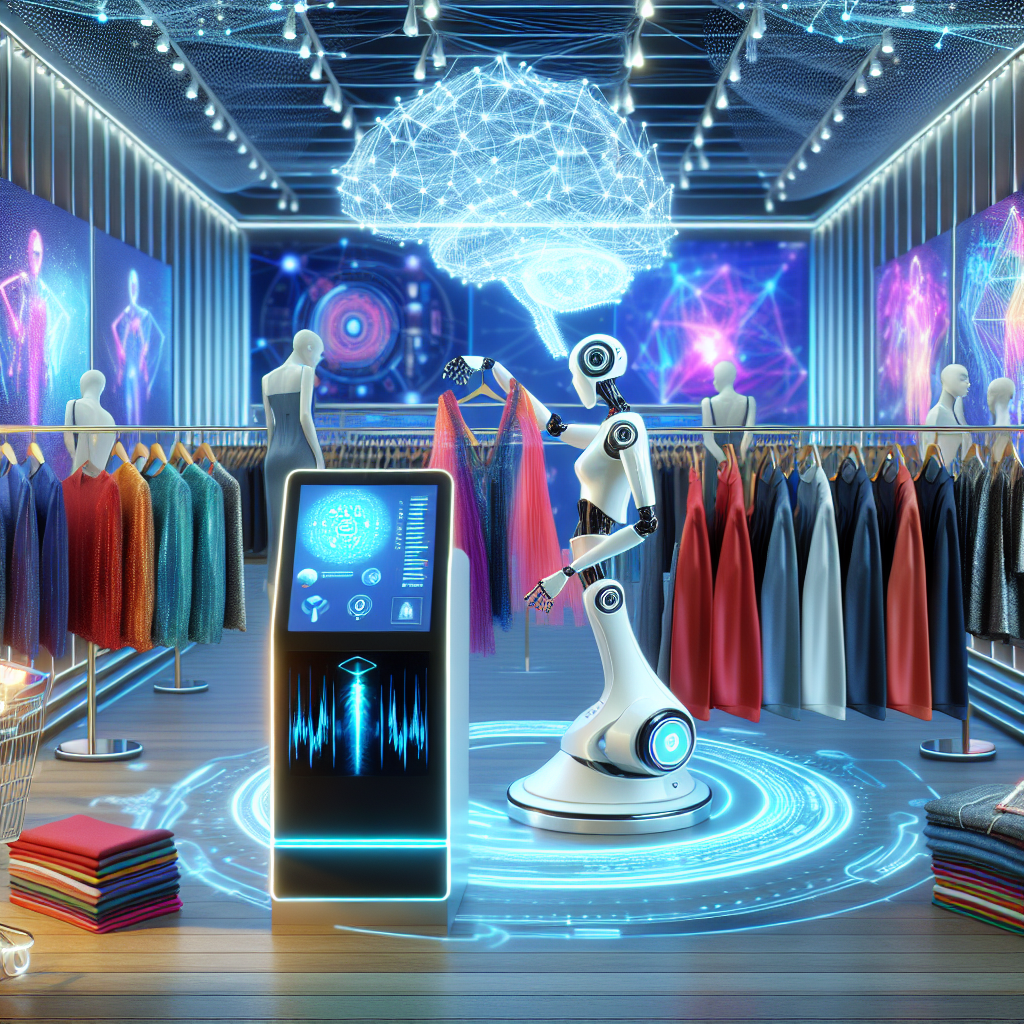The Future of AI-Powered Fashion Retail: What to Expect in the Coming Years
The fashion industry is constantly evolving, with new trends and technologies shaping the way we shop for clothes. One of the most significant advancements in recent years is the use of artificial intelligence (AI) in fashion retail. AI has the potential to revolutionize the way we shop, from personalized recommendations to virtual try-ons and more. In this article, we will explore the future of AI-powered fashion retail and what we can expect in the coming years.
1. Personalized Recommendations
One of the key benefits of AI in fashion retail is its ability to provide personalized recommendations to customers. By analyzing data such as browsing history, purchase history, and social media activity, AI algorithms can suggest products that are tailored to each individual’s preferences and style. This can help customers discover new brands and styles that they may not have found on their own, leading to increased sales and customer satisfaction.
In the future, we can expect AI-powered fashion retailers to take this personalization to the next level. For example, retailers may use AI to analyze customers’ body measurements and recommend clothing items that are the perfect fit. This can help reduce returns and exchanges, as customers will have more confidence in their purchases. Additionally, AI algorithms may also take into account factors such as weather, location, and upcoming events to provide even more relevant recommendations.
2. Virtual Try-Ons
Another exciting application of AI in fashion retail is virtual try-ons. Virtual try-on technology allows customers to see how clothing items will look on them before making a purchase. This can help reduce the uncertainty that often comes with online shopping, as customers can get a better sense of how a garment will fit and flatter their body.
In the coming years, we can expect virtual try-on technology to become even more advanced. AI algorithms may be able to simulate different body types and skin tones, allowing customers to see how a garment will look on a variety of people. This can help promote inclusivity and diversity in fashion, as customers of all shapes and sizes will be able to find clothing that fits them perfectly.
3. Supply Chain Optimization
AI can also be used to optimize the supply chain in fashion retail. By analyzing data on customer demand, inventory levels, and production capabilities, AI algorithms can help retailers better predict trends, manage inventory, and streamline production processes. This can help reduce waste, improve efficiency, and ultimately increase profitability.
In the future, we can expect AI-powered fashion retailers to use predictive analytics to forecast demand more accurately. This can help retailers avoid overstocking or understocking, leading to a more sustainable and profitable business model. Additionally, AI algorithms may also be used to optimize production schedules and logistics, further improving efficiency and reducing costs.
4. Enhanced Customer Service
AI can also be used to enhance customer service in fashion retail. Chatbots powered by AI can provide instant support to customers, answering questions, providing recommendations, and assisting with purchases. This can help improve the overall shopping experience and increase customer satisfaction.
In the coming years, we can expect AI-powered chatbots to become even more sophisticated. For example, retailers may use natural language processing to enable chatbots to understand and respond to complex customer queries. Additionally, AI algorithms may be used to analyze customer feedback and sentiment, helping retailers better understand their customers’ needs and preferences.
FAQs
1. Will AI replace human workers in fashion retail?
While AI has the potential to automate certain tasks in fashion retail, such as data analysis and customer service, it is unlikely to replace human workers entirely. AI is best used as a tool to augment human capabilities, rather than replace them. Human workers bring creativity, empathy, and critical thinking skills to the table, which are essential in the fashion industry.
2. How can I ensure that my data is safe when shopping with AI-powered retailers?
AI-powered fashion retailers collect a significant amount of data on their customers in order to provide personalized recommendations and enhance the shopping experience. To ensure that your data is safe, make sure to shop with reputable retailers that have strong data security measures in place. Additionally, you can also opt out of data collection or request that your data be deleted if you have concerns about privacy.
3. What are some potential ethical concerns with AI in fashion retail?
One potential ethical concern with AI in fashion retail is the risk of perpetuating biases and stereotypes. AI algorithms are only as good as the data they are trained on, so if the data is biased, the recommendations and decisions made by AI may also be biased. For example, AI algorithms may recommend clothing items based on gender stereotypes or cultural biases. It is important for retailers to be aware of these risks and take steps to mitigate them.
In conclusion, the future of AI-powered fashion retail is bright, with exciting advancements on the horizon. From personalized recommendations to virtual try-ons and supply chain optimization, AI has the potential to transform the way we shop for clothes. By leveraging AI technology responsibly and ethically, retailers can create a more personalized, efficient, and inclusive shopping experience for customers. As AI continues to advance, we can expect even more innovations in the fashion industry that will shape the way we shop for years to come.

